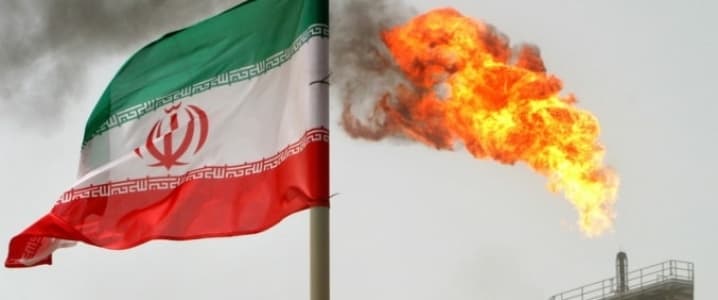Days after Iran tested a ballistic missile in a northern desert, newly-inaugurated U.S. President Donald Trump imposed sanctions on individuals associated with the program producing non-nuclear rockets capable of reaching Israel, as well as the United States.
The new round of targeted measures will do little to affect Iran’s now-growing oil industry, which has reestablished its standing as the third-largest producer in the Organization of Petroleum Exporting Countries (OPEC) following its economic liberation.
The missile test is at least the fifth of its kind since the Middle Eastern nation’s 2015 deal with a group of superpowers to provide international access to the country’s nuclear program in exchange for the removal of crippling multilateral sanctions on its economy.
Since January 14th, 2016 – when sanctions against its oil sector were lifted – Iran has defiantly rebuilt its lost oil output, at times at the expense of an OPEC agreement to cut global output for the sake of rebalancing oversupplied energy markets.
It does not seem that Trump’s new sanctions can do much to deter Iran from conducting the continuous ballistic missile testing, which “definitely violates the spirit, if not the letter” of the nuclear deal. In the past 24 hours, Tehran conducted a further missile test during its annual round of national military exercises – defying Trump’s efforts to curb parts of the Iranian military that are not limited under the deal negotiated by Former Secretary of State John Kerry. Related: Gasoline Prices Could Rise 30 Cents Because Of Border Tax
During the campaign and in the first two weeks of his presidency, Trump has made it clear that scrapping the historic deal altogether is not off the table. This idea counters even the arrangement’s critics, who insist on keeping the agreement to maintain American credibility in the global political arena.
"We gave up ... all of our leverage on the front end when we gave away the moneys that were stashed in various countries around the world and so now the leverage is with them," Republican Senator Bob Corker from Tennessee told MSNBC late last year. "I think the beginning point is for us to cause them to strictly adhere [to the deal]. And I think that what we have to remember is, we have to keep the Europeans and others with us in this process."
Months ago, the U.S.’s European partners began reintegrating Iran as a supplier in the global oil game. France’s Total, Greece’s Hellenic, Spain’s CEPSA, Italy’s Saras and Poland’s Lotus have all entered into buying contracts for Iranian crude since sanctions were lifted, the Tehran Times reports.
Because the American side of the deal has largely been enforced through executive orders authorized by President Barack Obama, Trump and his cabinet of billionaires do have the legal power to begin taking it apart, though reinstated sanctions would not be multilateral, as they had been before.
House majority leader Paul Ryan – a vocal dissenter to the nuclear deal as it was being adopted in 2015 – even said it was “key to rigorously enforce the deal” because “a lot of that toothpaste is already out of the tube.”
Secretary of State Rex Tillerson has remained silent on his stance on Iran, but, back in March when he was still CEO of ExxonMobil, he was not against doing business in the “resource-rich” country as political complications cleared up. Related: Dollar Or Iran? Oil Needs A Serious Catalyst To Breakout
“The history of Iranian-- in foreign investment in the past, their terms were always quite challenging, quite difficult,” Tillerson told CNBC. “We'll wait and see if things open up for U.S. companies. We would certainly take a look because it's a huge resource-owning country.”
American commitment to the deal paves the way for Iran to continue its ballistic missile tests, while reaping the rewards of a renewed oil sector. The U.S. has not purchased oil from Iran since 1992, meaning the Western country holds minimal economic leverage over the recovering petrostate.
ADVERTISEMENT
Political posturing in the form of targeted sanctions may cause anti-American sentiment in the country to flare-up as Iranian politicians paint Trump as the ultimate boogeyman, however, the scope of the unilateral sanctions will prevent any serious consequences to Iran’s oil sector moving forward.
By Zainab Calcuttawala for Oilprice.com
More Top Reads From Oilprice.com:
- Oil Prices Fall On Glut Fears Despite Tighter Market
- Saudis To Raise $10 Billion Ahead Of Aramco IPO
- Putin’s Tough Choice: China Or The West


















